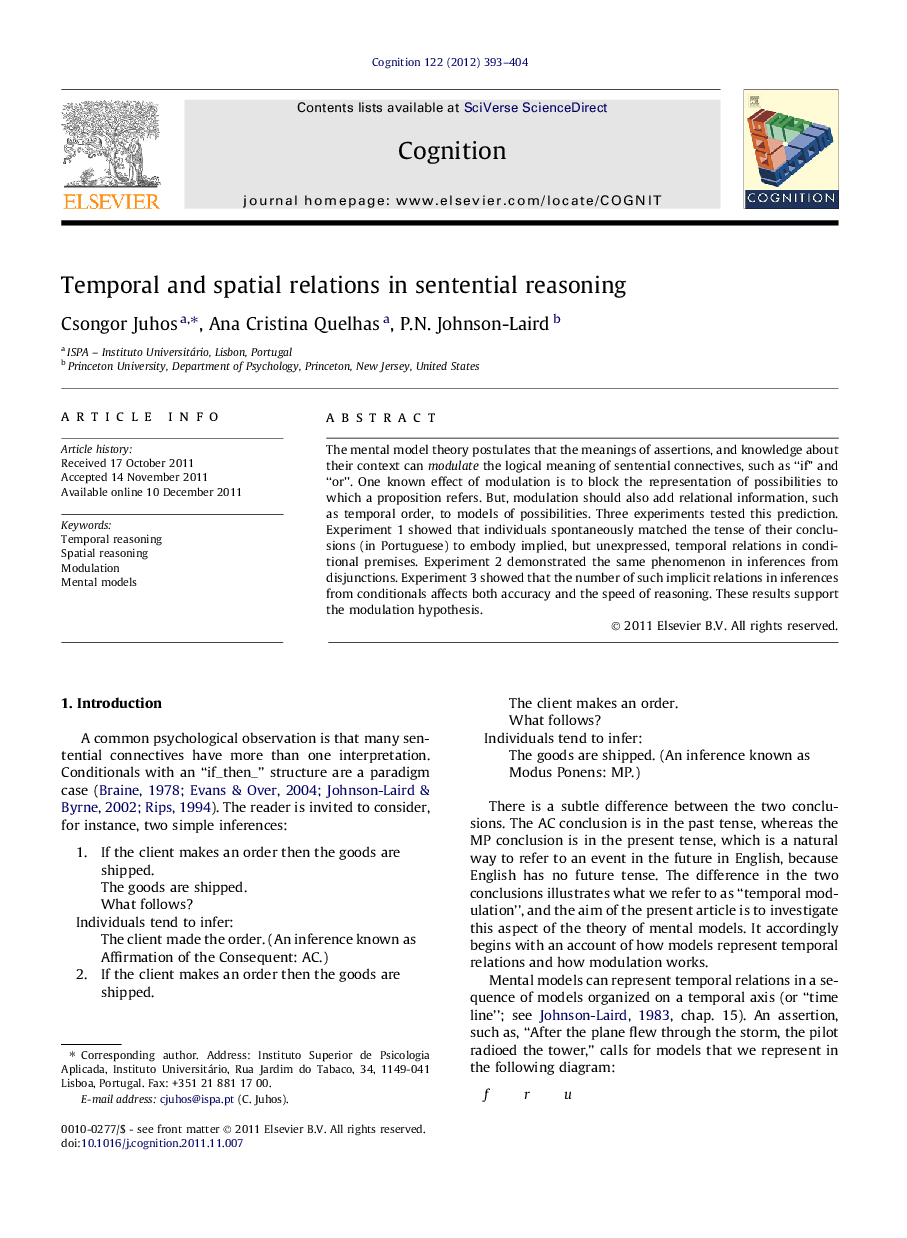| Article ID | Journal | Published Year | Pages | File Type |
|---|---|---|---|---|
| 926926 | Cognition | 2012 | 12 Pages |
The mental model theory postulates that the meanings of assertions, and knowledge about their context can modulate the logical meaning of sentential connectives, such as “if” and “or”. One known effect of modulation is to block the representation of possibilities to which a proposition refers. But, modulation should also add relational information, such as temporal order, to models of possibilities. Three experiments tested this prediction. Experiment 1 showed that individuals spontaneously matched the tense of their conclusions (in Portuguese) to embody implied, but unexpressed, temporal relations in conditional premises. Experiment 2 demonstrated the same phenomenon in inferences from disjunctions. Experiment 3 showed that the number of such implicit relations in inferences from conditionals affects both accuracy and the speed of reasoning. These results support the modulation hypothesis.
► General knowledge can modulate the logical meaning of connectives, such as IF and OR. ► It can add relational information, such as the temporal order of events. ► So people alter the tense of conclusions, though there is no logical reason to do so. ► Modulation exerts a load on the interpretative system, and inferences became slower. ► The results corroborate the mental model theory.
